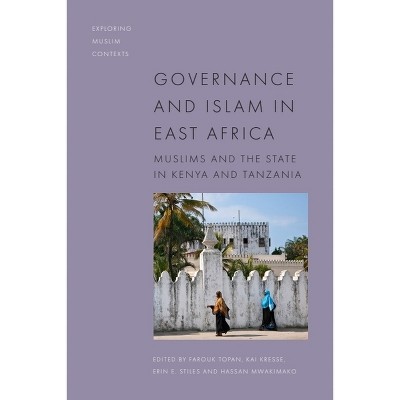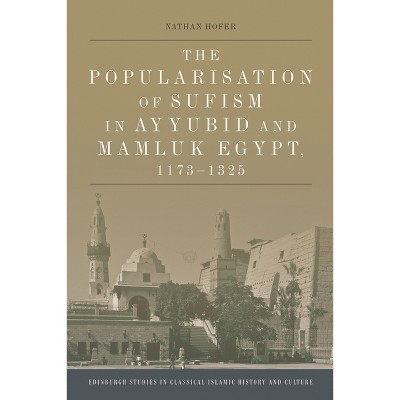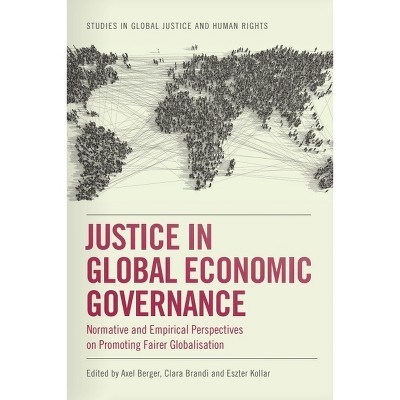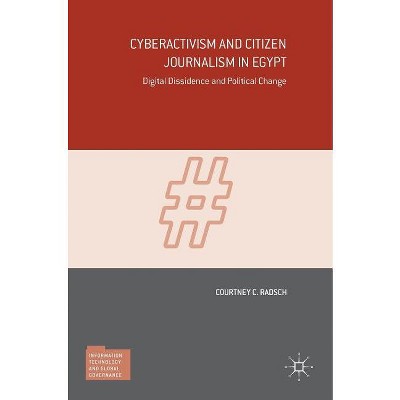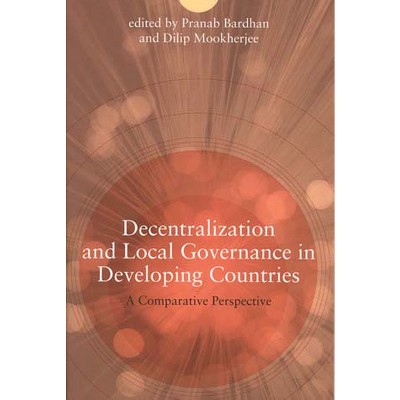The Dilemma of Authoritarian Local Governance in Egypt - by Hani Awad (Paperback)

About this item
Highlights
- The authoritarian upgrading process in Egypt has enabled the regime to have a more effective dominance in local politics and to enhance its political control.
- About the Author: Hani Awad is researcher in the Arab Centre for Research and Policy Studies (ACRPS), Doha Institute and editor of the Omran journal at the ACRPS.
- 248 Pages
- Political Science, World
Description
About the Book
Examines how centralised authoritarian regimes upgrade their system of local governance
Book Synopsis
The authoritarian upgrading process in Egypt has enabled the regime to have a more effective dominance in local politics and to enhance its political control. However, its strategies failed to overcome the weakness of system mobilisation functions, which reflected the authoritarian dilemma of bridging the macro (the national) and the micro (the local). Drawing on extensive fieldwork, Hani Awad explores the formal and informal decentralisation strategies employed under three regimes (Nasser, Sadat and Mubarak) to upgrade the Egyptian system of local governance without giving up power or democratising local governments.
From the Back Cover
Examines how centralised authoritarian regimes upgrade their system of local governance The authoritarian upgrading process in Egypt has enabled the regime to have a more effective dominance in local politics and to enhance its political control. However, its strategies failed to overcome the weakness of system mobilisation functions, which reflected the authoritarian dilemma of bridging the national and the local. Drawing on extensive fieldwork, Hani Awad explores the formal and informal decentralisation strategies employed under three regimes (Nasser, Sadat and Mubarak) to upgrade the Egyptian system of local governance without giving up power or democratising local governments. He traces the rise and increasing influence of Islamist challenges to loyalist networks and explains how the efficacy of Islamist mobilisation over the past two decades influenced the region's response to the events of the Egyptian Revolution in 2011. Key features Offers a comprehensive understanding of the way that the Egyptian authoritarian regime has upgraded its system of local governance since Nasser Maps out the motivations for the process of authoritarian upgrading of local governance, as well as its benefits for authoritarianism Analyses of the role of the state ruling party, focusing on the changing relationships between the local state and the Arab Socialist Union (1962-78) and the former National Democratic Party (1978-2011) Includes a microanalysis based on extensive fieldwork in the Greater Cairo peri-urban fringe Hani Awad is a Researcher at the Arab Center for Research and Policy Studies, Doha Institute.Review Quotes
Well-researched and deftly argued, Awad's work fills an important gap in literature on authoritarian upgrading. Based on impressive fieldwork and extensive interviews, he traces how upgrading processes extended outward and downward from the national to the local level, reshaping municipal political landscapes in the process. Awad's research deserves to be widely read. It represents a significant contribution to scholarship on contemporary Egyptian politics, urban politics, social mobilization, Islamist movements, and authoritarian upgrading.
--Steven Heydemann, Professor of Government and Middle East Studies, Smith CollegeAbout the Author
Hani Awad is researcher in the Arab Centre for Research and Policy Studies (ACRPS), Doha Institute and editor of the Omran journal at the ACRPS. He previously worked as an academic assistant at the University of Birzeit, from where he received a master's degree in contemporary Arab studies. He has a PhD in international development from the University of Oxford and his research interests focus on a wide range of political and sociological topics. His published works include his book, Transformations of the Concept of Arab Nationalism (2012. Beirut: Arab Network for Research & Publishing [in Arabic]).






